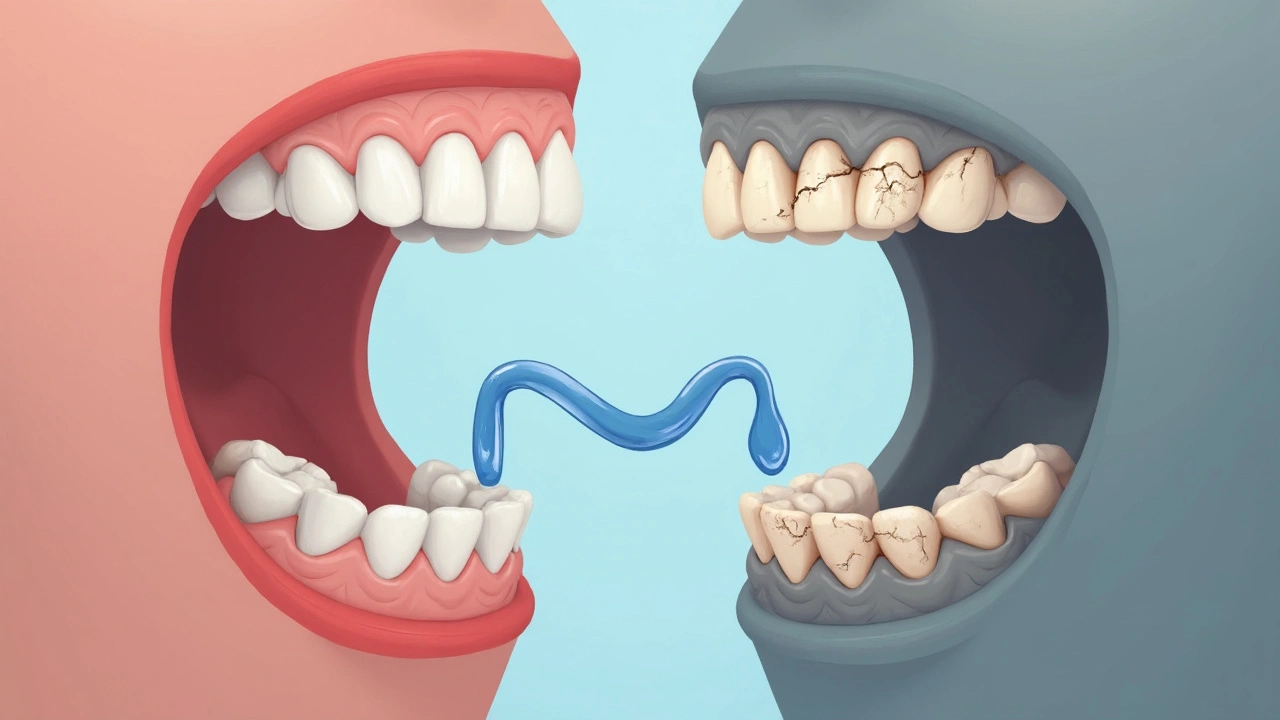Dry Mouth (Xerostomia): Quick Guide & Relief Tips
If you’ve ever felt a sandy feeling in your mouth after a night of drinking water, you know how annoying dry mouth can be. It’s more than just discomfort—low saliva can affect speech, taste, and dental health. Below we break down why it happens and what you can do right now to feel better.
What Makes Your Mouth Feel Parched?
Saliva is produced by three glands that work nonstop. Anything that slows those glands down can leave you with a dry, sticky feeling. Common culprits include:
- Medications: Antihistamines, antidepressants, blood pressure pills, and some pain relievers often list dry mouth as a side effect.
- Health conditions: Diabetes, Sjögren’s syndrome, and Parkinson’s disease can reduce saliva flow.
- Lifestyle factors: Smoking, excessive caffeine or alcohol, and breathing through the mouth, especially at night, drain moisture.
- Dehydration: Not drinking enough water, especially in hot weather or after intense exercise, will thin your saliva.
Notice a pattern? If you started a new prescription or changed your diet, check if dry mouth appeared at the same time.
Simple Ways to Beat Dry Mouth
Most people can manage symptoms with a few easy habits. Try these first:
- Sip water frequently. Small sips keep the mouth moist without flooding it.
- Chew sugar‑free gum or suck on sugar‑free lozenges. The act of chewing stimulates the glands.
- Choose saliva‑friendly foods. Soft fruits (like melon), yogurt, and soups add moisture.
- Avoid alcohol‑based mouthwashes. Opt for alcohol‑free rinses or just rinse with plain water.
- Humidify your bedroom. A cool‑mist humidifier adds moisture to the air you breathe while you sleep.
If these tricks don’t help, talk to your pharmacist or doctor. They might adjust your dose, switch you to a different drug, or prescribe saliva‑boosting medications such as pilocarpine or cevimeline.
Don’t forget oral care. Dry mouth raises the risk of cavities and gum disease, so brush twice daily with fluoride toothpaste and floss regularly. A fluoride rinse can add an extra layer of protection.
When to see a professional? If dry mouth lasts more than a few weeks, leads to frequent sore throats, trouble swallowing, or tooth decay, schedule a visit. A dentist can spot early damage, and a physician can rule out underlying conditions.
Bottom line: dry mouth isn’t just “annoying” – it can affect health. By spotting triggers, staying hydrated, and using simple home tricks, you can keep your mouth comfortable and protect your smile.

Ever wondered why your mouth feels dry sometimes? It’s more than just thirst. Saliva plays a huge part in keeping our mouths healthy. Without enough saliva, our teeth and gums can suffer, leading to increased dental issues. Understanding how saliva affects oral health can keep you smiling comfortably.
- Read More
